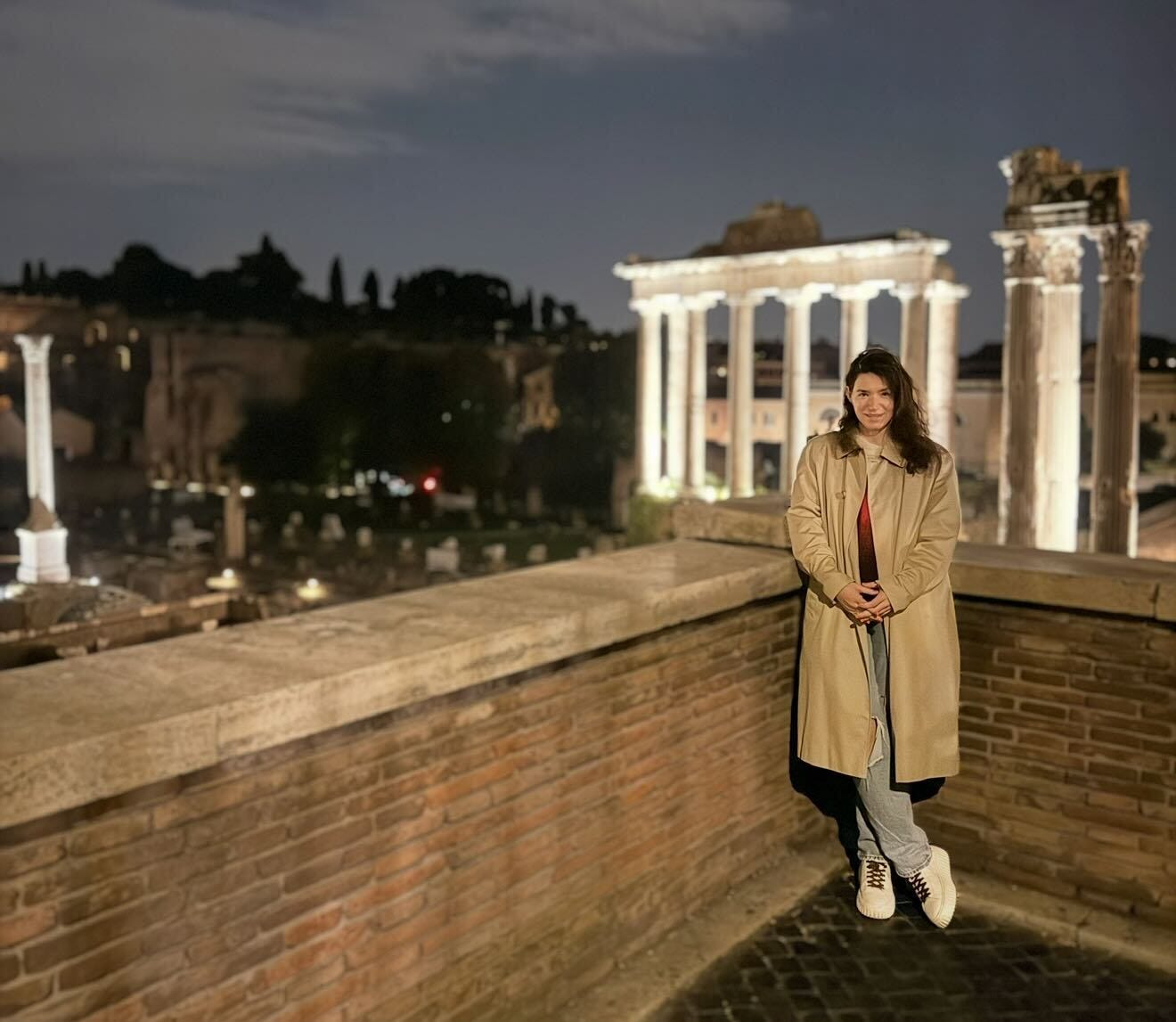The Plight of the Polymath
Today the career landscape often glorifies specialization and expertise, leaving “polymaths” — individuals with diverse interests and skills — to navigate a path labelled as abnormal or non-traditional. Their journey, especially in the early stages of their careers, may be marked by a different set of experiences and perceptions.
I’m not broaching this topic with the goal of self-identifying as a polymath, though I do have a diverse academic and work background. Sometimes polymath is equated with genius and rest assured, I am not placing myself anywhere near that type of distinction. When I have been called a polymath I take it as a very generous compliment. Terminology remains debatable, but what is clear is that I have had a less traditional journey.
A bit about me…
I have always had an insatiable curiosity and broad range of interests. For evidence: BA political science and religion, MA philosophy, MA Egyptology1, current PhD candidate philosophy. I’ve worked in admin, compliance, legal, investment analyst, consultant, communications and investor relations roles. I enjoy drawing, painting, linocut, reading, writing poetry2. I am only fluent in one language, but can muddle my way through present/future tense conversations in Italian and can read Latin decently. I’m currently working on improving my grasp of python and Portuguese. In addition to North America I have lived in Morocco, Italy and across SEA.
You get the point. My personality and way of being is the opposite of “pick a lane.”
When thinking about my future career, there was never a precise vision. I felt like I wanted to do everything, or at least try many things. Ultimately, I wanted to work on things I enjoyed; not so much a specific topic, but rather stay engaged in the processes I enjoyed (intense problem solving, research) and the types of people and personalities I enjoyed working alongside. For me, what holds my attention and keeps me motivated are challenges and a constant influx of new material to learn. I enjoy the level of overwhelm or unknowingness that comes with getting acquainted with subject matter that I am initially clueless about.3
So, yes, my career path has defied some traditional expectations. And to be clear, I’m not writing this to whine about how hard of a time I’ve had — I haven’t had a terrible time of things, I am very fortunate and I have no regrets. But, I also am not blind to the eyebrow raises, the chuckles, or the more pronounced confusion when engaging in a conversation about my background and interests. I get that there are people who think (and have told me as much) that some of the things I have spent time on are not particularly meaningful. I have never cared deeply or taken these comments to heart, but I believe this type of assumptive or dismissive thinking ignores the value that interdisciplinary perspectives can lend.
Aptitude & Attributes
Polymaths4 thrive on the interconnectedness of knowledge and the exploration of diverse domains. Where others may think “that is random” polymaths may be more apt to align themselves with an intention of discovering the overlaps, the connections, the relationality between things that at first glance appear completely disparate. However, this very strength can become a double-edged sword, especially when first entering the professional arena.
Society and the professional realm tend to value specialization, so when someone expresses an interest in multiple fields or demonstrates expertise in various areas, they likely encounter some skepticism. The common perception is that a jack-of-all-trades is a master of none, implying that their skills are superficial or lacking depth. This misconception can lead to a lack of recognition and appreciation for the unique talents polymaths bring to the table.
A natural question came up for me as a student. How could I avoid the risk of being perceived as unfocused?
Gravitating towards roles where you are essentially forced to handle many things, where the job description or scope of responsibilities is ambiguous certainly has helped. I am genuinely happy to see CoS roles gain increasing relevancy, not only because I am in that position currently (having filled that role sans-title in the past) but also due to the fact that there are so many talented people out there who may fail to thrive or be true to themselves in hyper-specialized roles.
And that is OK - there is absolutely a place for polymath characteristics across many sectors and roles (I think CoS is a great example). I hope that in the future we can curb our collective desire to label diversity of interests as simply “non-traditional.”
Polymath Prowess
As time progresses and polymaths continue to navigate their careers, an interesting shift may occur. The very qualities that were once seen as irrelevant become their greatest assets. I have not reached that point quite yet (also I balk at recognition) but I think polymaths tend to age well in a way. After they achieve some normative sense of success (this varies individually and culturally, of course) their diversity of interests tend to become spoken about as an asset. Their journey, once seen as unconventional, now becomes a testament to their resilience and curiosity.
Unfortunately, early in one’s career, highly diverse interests are not always effectively leveraged and understood as a foundational benefit to solve complex problems and offer unique perspectives. But, in time, employers and peers may start to appreciate the insights and creativity that polymaths bring to the table, as their ability to connect dots across disciplines, to see patterns and make innovative connections becomes understood as valuable5.
The non-traditional or non-prescribed resume is looked at as an outlier, more likely to be scrutinized or questioned. I hope in time that connotation may change. This is of course not to say there is anything wrong with true specialists or culturally “traditional” career paths. Only that what we like to call “non-traditional” certainly has a real and true capacity for value-add in many roles.
I feel truly grateful to have been able to work with people who do not frame myself or my background as an oddity (especially in my role now, shout out to Marell Evans for believing in me back in 2021!). If you are someone who has a desire to explore many things at all times, finding environments that support this will likely be more rewarding. Finding time outside of work to pursue other hobbies is important as well. Mentorship also plays a critical role and is one thing I wish I had more of during the first decade of my career.
People seem to forget that some of the greatest innovations and discoveries have come from individuals who were non-traditional thinkers. Here I need to mention that women, and especially Black women and women of color, too often are left out of the historical record of invention and innovation but think about Ada Lovelace, Ban Zhao, Émilie du Châtelet, Hypatia of Alexandria, Dorothy Dunnett, Maya Angelou to name just a very, very few…
Across all genders, geographies and personas, I hope to see greater value placed on interdisciplinarity and less skepticism when it comes to non-traditional backgrounds for certain roles and career paths. Power to the polymaths!
The Egyptology degree confuses people the most. I started it in late 2020 so I knew I would have time for it while we were in lockdown and I was working full-time and doing my philosophy MA. I wanted to research pre-Socratic philosophy and explore the idea of Egypt (not Greece) as highly formative for many Socratic/post-Socratic traditions (and beyond). I did not think that a Classics department would the best place for this so I pursued the Egyptology program at Manchester, which I loved.
Other non-work things of mine can be viewed at melissamoranoaurigemma.com
I saw Robert Smith talk at an AWS event this past September and he spoke on the positive quality of “expanding the aperture of your thinking” which really resonated with me.
Not trying to speak for all “polymaths” just speaking generally.
For more reading re: polymath characteristics as an asset, check out Tim Denning’s piece on The Polymath Mindset.




